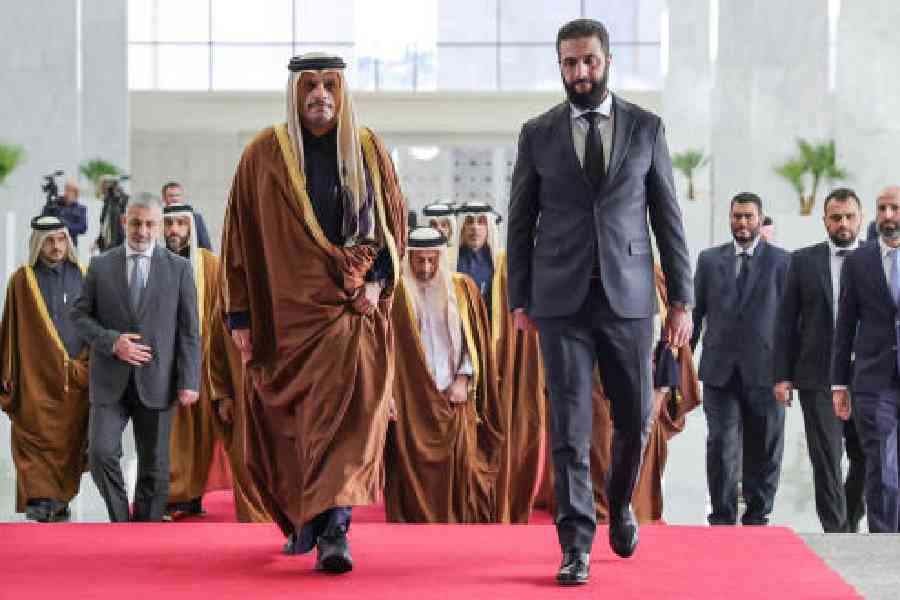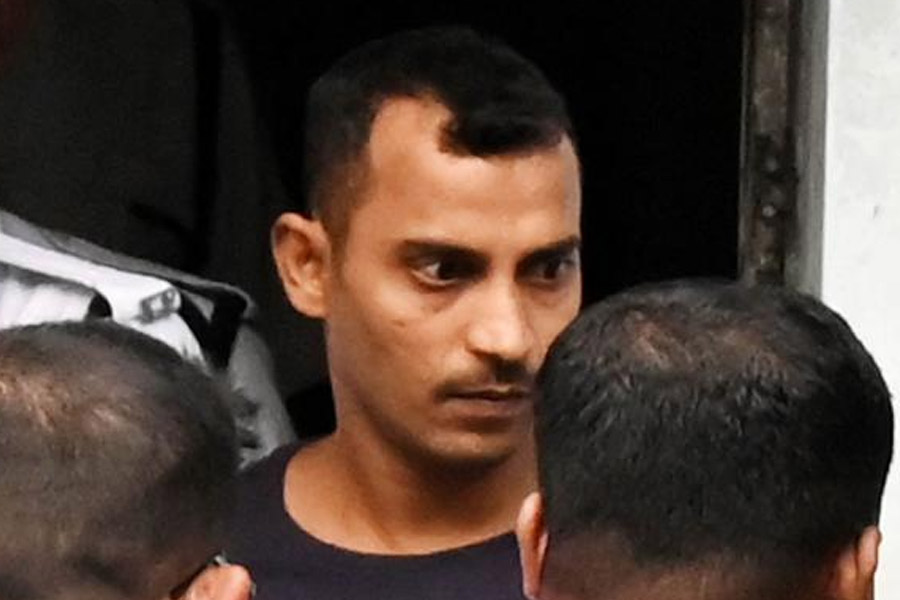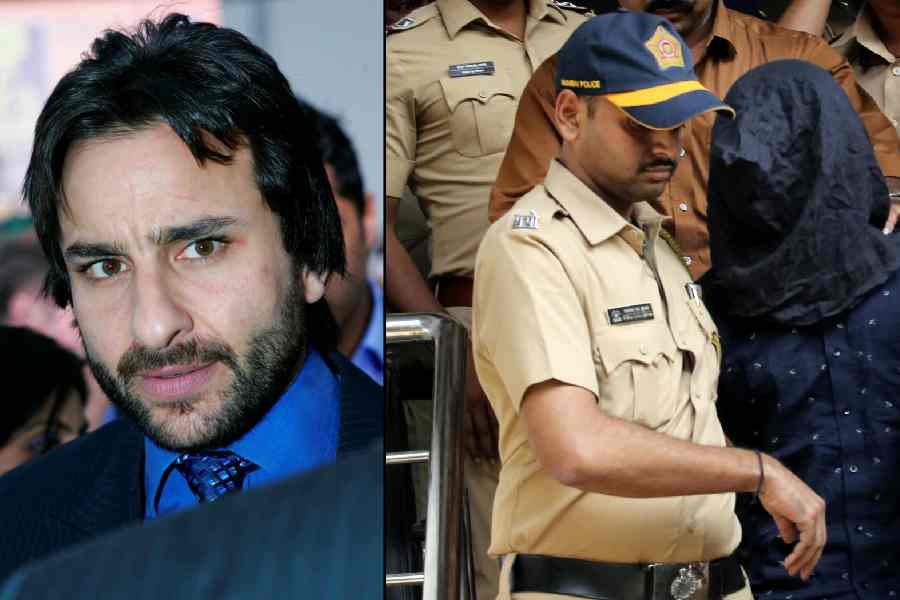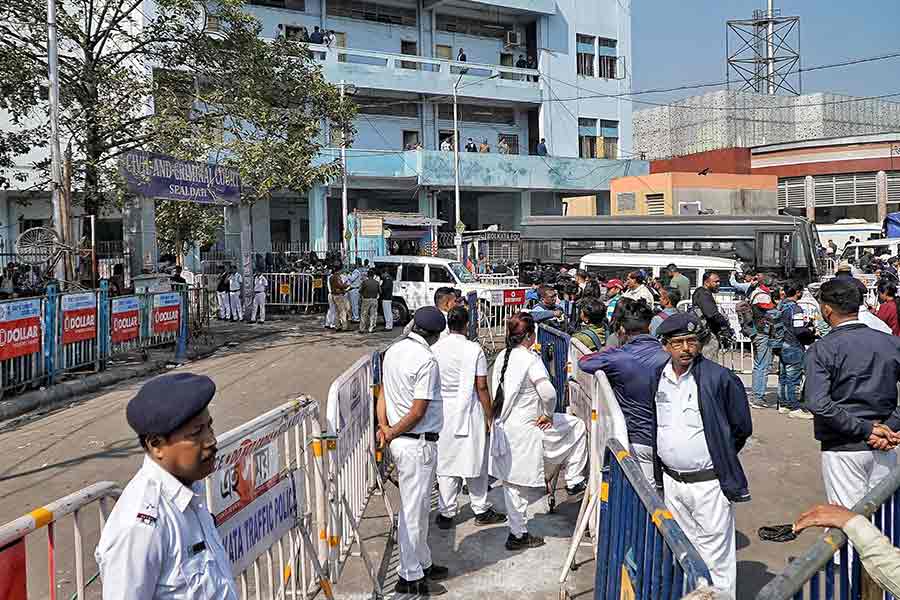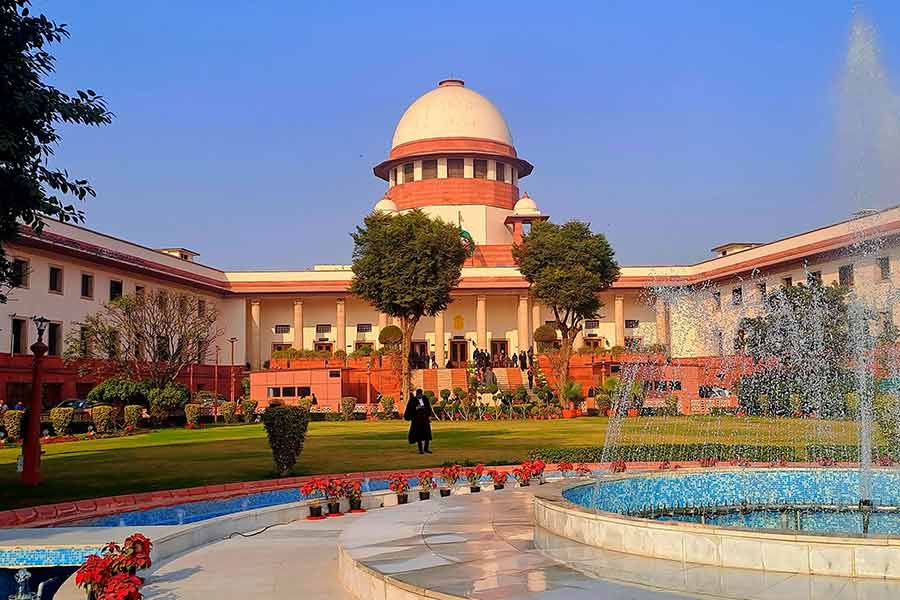At his seaside office complex in Doha on Wednesday evening, the Qatari Prime Minister thought he had a deal. Hamas’s negotiators, led by a burly former lawmaker, had left the Prime Minister’s office, having given up on an 11th-hour demand that was the last major obstacle to a ceasefire in Gaza after 466 days of war.
Reporters had begun to assemble in an auditorium downstairs, expecting to witness the Prime Minister, Sheikh Mohammed bin Abdulrahman Al Thani, announce that he and other mediators had finally brokered a deal. Two American envoys joined Sheikh Mohammed as he prepared his statement.
Suddenly, there was a new problem, according to two people familiar with the negotiations.
In a room elsewhere on the sixth floor, the Israeli delegation, led by the heads of Israel’s two main intelligence agencies, had their own last-minute demand. Prime Minister Benjamin Netanyahu wanted to clarify the names of a handful of Palestinian prisoners whom Israel would release during the truce.
As his aides tried to resolve the final hitch, Sheikh Mohammed sat in his office with Brett McGurk, President Joe Biden’s lead negotiator, and Steve Witkoff, the representative of President-elect Donald J. Trump, hoping that their efforts had not been wasted.
What pushed the deal over the line last week was the unlikely partnership between the envoys of America’s current and future Presidents, working in tandem with the Qatari Prime Minister in marathon late-night meetings. While Biden and Trump have competed for credit, the reality is that their representatives were both crucial to the final push, each using different approaches to push the Israeli leadership towards a deal while Sheikh Mohammed focused on Hamas.
Starting last Sunday, the Israeli and Palestinian delegations, as well as the two Americans, spent long days at the Prime Minister’s compound. The delegations, which do not speak directly to each other, sat in different rooms on different floors, with Qatari and Egyptian officials passing messages between the two sides.
On the American side, McGurk had helped oversee US mediation efforts since the opening weeks of the war alongside other key players, including the head of the CIA, William J. Burns.
But in the final days, it came down to the triumvirate. It was McGurk, a veteran diplomat long focused on West Asia, who helped craft the deal’s complicated details nearly a year ago. It was Witkoff, a real estate investor who plays golf with Trump, who was instrumental in persuading Israel to finally agree to the deal’s contents. And it was Sheikh Mohammed who persuaded Hamas to make key compromises, while providing both sides with the office space in which to wrangle the final details.
Momentum on the talks returned after Trump’s re-election in November, even before the President-elect warned Hamas that there would be “all hell to pay” if the hostages were not released by his inauguration. He appointed Witkoff, who had no diplomatic experience but growing business relationships in Qatar, as his emissary in West Asia. Witkoff had been playing golf with Trump in September during what law enforcement officials said was an attempt on the former and future President’s life.
Quietly, members of the Biden administration reached out to Witkoff to see if they could work together on the ceasefire talks, according to two people familiar with the conversations. Despite vast political chasms between their bosses, McGurk and Witkoff began to coordinate, sometimes talking several times a day, according to one of the people.
Still, wide gaps between Hamas and Israel remained. Shortly before Christmas, with just weeks left in the Biden presidency, McGurk returned despondently from a trip to Doha. He told the Qataris that he would not fly back unless Hamas made a clear signal of its interest in a deal, according to two people familiar with his thinking.
That moment came in the first days of January, according to two people involved in the process. Sheikh Mohammed persuaded Hamas to confirm the names of more than 30 hostages who would be released during the first six weeks of a truce, a long-awaited move.
McGurk was informed of the breakthrough while attending his daughter’s birthday party at an indoor trampoline park on January 4, according to two people familiar with the event. He left the party halfway through, immediately flying to Doha to meet Sheikh Mohammed, his Egyptian counterparts and Israeli negotiators. Witkoff joined him on January 10.
The main remaining differences centred on the depth of a buffer zone that Israel sought to maintain within Gaza’s borders, as well as the number of prisoners to be exchanged for wounded and sick hostages.
It was a visit at short notice by Witkoff to Jerusalem last Saturday, the Jewish Sabbath, that brought a new breakthrough, according to four officials briefed on the meeting.
Witkoff sat with Netanyahu and senior Israeli officials in the Prime Minister’s Jerusalem office, with McGurk joining the discussion by telephone.
The two Americans pressed Netanyahu to soften on the last two big obstacles, according to a person familiar with the discussion. McGurk warned the Israeli leader that he risked losing his best chance of sealing a deal. Then Witkoff applied the necessary pressure, stressing to Netanyahu that Trump wanted this deal done, the person said.
After the meeting, Netanyahu seemed to have changed his attitude, four officials said. He immediately ordered his four top negotiators to Doha.
Over the next four days, Sheikh Mohammed hosted a marathon series of meetings, mostly in his personal office, as Hamas officials, Israeli negotiators, Egyptian intelligence officers and the two Americans spoke with him, sometimes until the small hours of the morning.
The Israeli and Hamas teams, based on different floors, never saw each other; they took turns entering the Prime Minister’s office for updates on their enemy’s latest position.
The biggest breakthrough came close to midnight last Sunday, according to three people familiar with the moment. Sheikh Mohammed told the two Americans that the deal could be closed if Israel could make two more compromises.
McGurk and Witkoff walked together down the corridor to the Israelis’ room, where the negotiators were already speaking over phone with Netanyahu. Joining the call, the Americans told the Israeli leader that a deal could be reached if he agreed to slightly increase the number of prisoners involved in the swap, as well as slightly decrease the depth of the buffer zone.
After a loud debate in Hebrew between Netanyahu and his team, they made the compromise.
The Americans returned to update Sheikh Mohammed.
The deal was finally cemented — and so was one of the unlikeliest pairings in diplomatic history.
New York Times News Service

